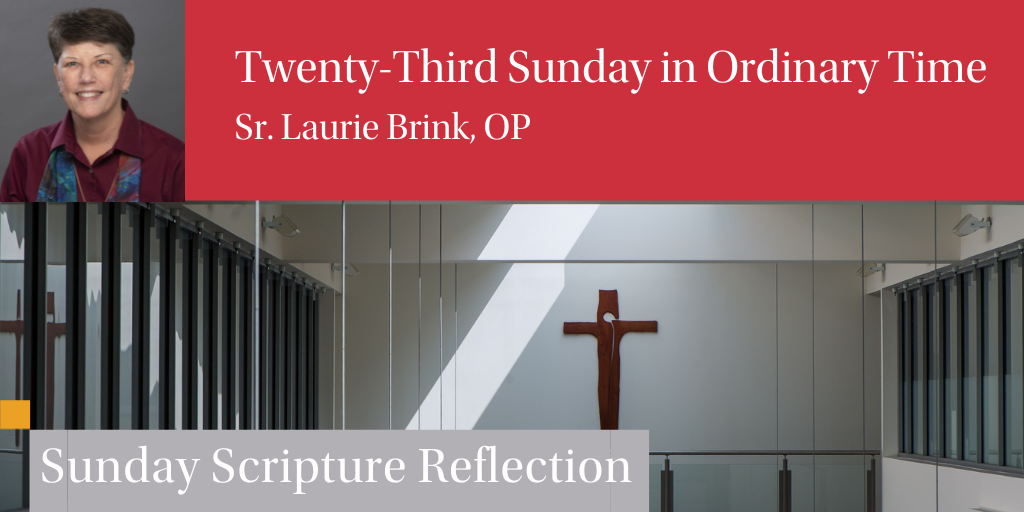
Readings:
Reading I: Wis 9:13-18b
Psalm: 90:3-4, 5-6, 12-13, 14 and 17
Reading II: Phlm 9-10; 12-17
Gospel: Luke 14: 25-33
My father often remarked that I had a bunch of book-learning but not so much practical knowledge. To fix this lacuna, he gave me a toolbox. A red tacklebox filled with what he deemed the most necessary implements for a successful life. If anyone can tell me what to do with a pipe wrench, socket wrench, or Allen wrench, I’d be grateful. Today’s readings are all about wisdom—knowing where to find it; using the skills you have; and counting the costs before you begin. My father would approve.
Claiming to be authored by King Solomon, the Book of Wisdom, from which the first reading is taken, was actually written in Alexandria, Egypt some fifty years before the coming of Christ. In the persona of Solomon, the narrator first describes his pursuit of Wisdom (Wis 8:2) and his recognition that only God could give true Wisdom ((Wis 8:21). “Scarce do we guess the things on earth…but when things are in heaven, who can search them out?” (Wis 9:16). The holy spirit enables humanity to know the things of heaven (Wis 9:17), thus the pursuit of Wisdom is a godly endeavor.
Paul is a man of his times, and in today’s second reading from the Letter to Philemon, he demonstrates his rhetorical skills. At first glance, the letter reads as if Paul is returning the slave, Onesiums, to his master, Philemon, a Christian whom Paul brought to the faith. But Paul is forcing Philemon’s hand, “so that the good you do might not be forced but voluntary” (v. 14). Paul names Onesimus as his “own heart” and later asks Philemon to “refresh my heart in Christ” (v. 20). There is little doubt that Philemon would have to capitulate to Paul’s request, since Paul is his spiritual patron, thus Paul reminds him that “you owe me your very self” (v. 19).
If the first reading reminds us where to seek wisdom, and Paul shows us how to use the skills we have effectively, then the Gospel comes as a bit of a shock. Is Jesus really telling us that in order to follow him, we have to hate our family? We are to love our enemies and do good to those who hate us (Luke 6:27), but here we are to hate father, mother, spouse, children, and siblings, and our very lives! “Hating” one’s parents and family would be societal suicide since the family was the source not only of well-being but of identity.
To understand more fully what Jesus is saying, we need to pay attention to where and why he is saying it. In Luke 9:51—18:14, Jesus has left the relative comfort of Galilee and begun the journey to Jerusalem, a place he laments kills the prophets and stones those sent to it (Luke 13:34). This is no bait and switch. Jesus is clear about the costs to himself and his disciples.
Jesus announces that discipleship requires a singular focus and a willingness to carry the cross (14:26-27). It would seem the first cross to carry is leaving behind the comforts and support of family. The parable of building a tower (14:28-30) and the parable of the prudent king (14:31-32) suggest that discipleship also requires a realistic assessment of the costs and one’s ability to complete the task.
I wonder if the disciples felt a bit like I did when I received my toolbox. Is this knowledge I want? Couldn’t I just call a plumber? Isn’t there an easier way? To this last question, Jesus offers a definite “no way.” Discipleship is an all-or-nothing affair. But as the parables in the following chapter will show, we don’t have to be perfect at it. “No disciple is superior to the teacher; but when fully trained, every disciple will be like his teacher” (Luke 6:40).
